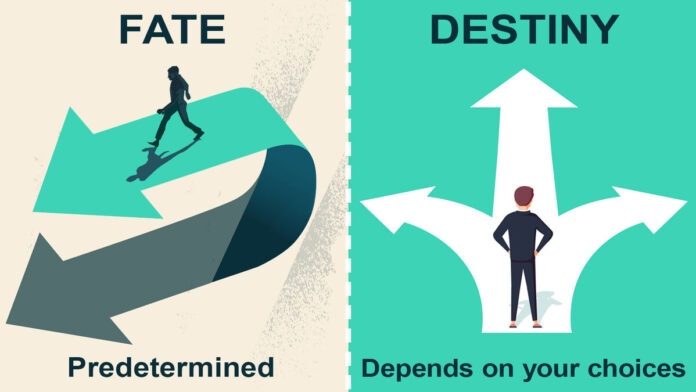We are required to believe in Taqdeer, that is fate. This is a principle article of Islamic faith. Many people misunderstand or misinterpret this. There are questions that are unanswered and create confusion about Taqdeer, for example:
- If our final abode or our worldly deeds are already destined, then what is the need to doing good deeds or offer prayers to the Al-Mighty.
- There are many narrations referring to certain actions as a cause of increase in one’s wealth and lifespan, and also a means of averting calamities. For example, Hazrat Thawban narrated that the Messenger of Allah said, “Verily a man is deprived of a provision (that was written for him) because of a sin that he commits; only supplication changes destiny; and only righteousness can increase the life span.” (Nasai, Ibn Majah)
- How is it possible when everything has been preordained through destiny?
Let’s try to understand step by step:
- Firstly, the purpose of mankind’s creation is that we worship Allah the Almighty and we show obedience to Him. Allah states in the Holy Qur’an, “I created the Jinn and humankind only that they might worship me.” (51:56)
- Secondly, this world serves as a test of our obedience towards our creator, Allah the Almighty and so that He may reward us in the next world accordingly.
Allah states in the Holy Qur’an, “Verily we created man from a drop of mingled sperm, in order to try him: so we gave him (the gifts), of hearing and sight. We showed him the way: whether he be grateful or ungrateful (rests on his will).” (76:2-3)
- Thirdly and very importantly, the idea that this world is a test warrants that the subjects being tested possess free-will or else there would be no meaning to such a test.
With the above in mind the concept of destiny may further be explained by understanding destiny to be Allah’s knowledge of how the individual is going to use his free-will rather
than a pre-decided factor being enforced upon him without giving him a fair chance.
Let’s understand “Allah’s Knowledge” with this classical example:
An appointment is arranged between two individuals. The first arrives before time and waits for the second; he then comments that the second will arrive late as always. He bases his prediction on previous experience and the lax nature of the second individual. This statement does not restrict or bound the latter’s ability to attend on time in any way, it is merely an assertion.
Similarly, when Allah the Almighty informs us, through his infinite knowledge, of his knowledge of our precise actions and our consequent abode it should not be perceived to be a compelling decision against our free will, but rather only his knowledge of our decisions.
In brief, every individual has been given free-will and should use it to work towards attaining the pleasure of Allah and that Allah has full knowledge of the individual’s actions; past, present and future.
With regards to the second misconception, the possibility of increase in one’s wealth, lifespan and aversion of calamities despite destiny being pre-ordained, Allah says, “Allah blots out what he wills and conforms (what he wills): and with Him is the mother of the book (i.e. book of conclusive records).” (13:39) – that is Ummul Kitab.
Mujahid commented on the above verse by saying, “During Laylatul-Qadr (night of the Decrees), Allah decided what provisions and disasters will occur in the next year. He then brings forward or back (or blots out) whatever He wills.” (Ibn Katheer)
So, scholars derive from these verses and narrations that destiny is of two types:
- a) Taqdeer Muallaq (Revocable Fate):
This destiny is written on ‘The Preserved Tablet’ (al Lawh al Mahfoodh), and is subject to change and alteration through the omission or commission of certain deeds. For example: the lifespan of a person is originally 50 years, but may increase to 60 years if he performs the ritual of Hajj, or a certain calamity is to befall him unless he averts it by spending in charity. This is the destiny referred to in the aforementioned narration.
- b) Taqdeer Mubram (Irrevocable Fate):
This destiny denotes the eternal knowledge of Allah. It encompasses the final result of the Muallaq destiny i.e. our choice of actions, their consequences and every precise detail of our lives. This definite knowledge of Allah is not subject to change or alter even slightly and is exclusive to Allah only.
In the light of the above the following may be derived:
- Our prayers and supplications do change destiny and are of much avail.
- Good deeds are a source of increase in one’s sustenance, and avert calamities.
- Sins result in a decrease in one’s sustenance, and invite calamities.
With inputs from sources




